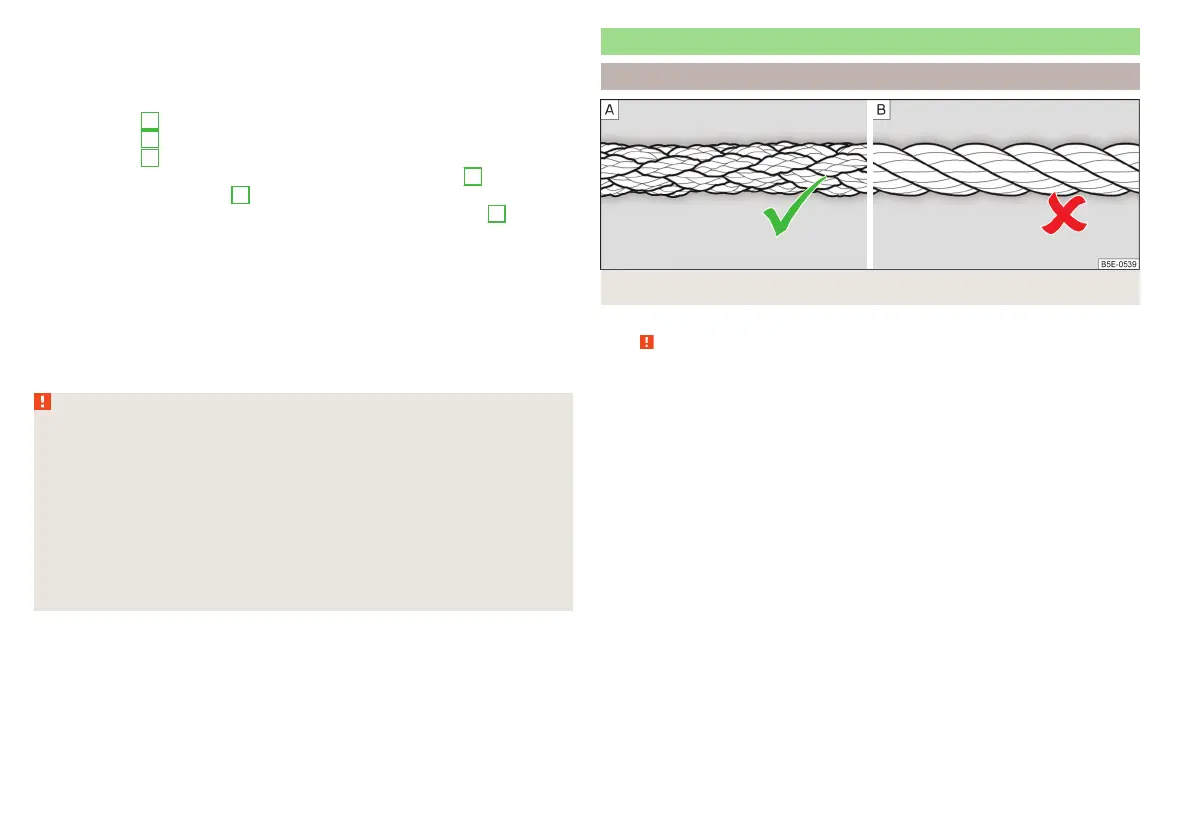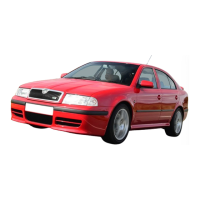The rated voltage of the two batteries must be 12V. The capacity (Ah) of the
current-giving battery must not be significantly less than the capacity of the
discharged battery in your vehicle.
The jump-start cables must be attached in the following sequence.
›
Attach clamp
1
to the positive terminal of the discharged battery.
›
Attach clamp
2
to the positive terminal of the current-giving battery.
›
Attach clamp
3
to the negative terminal of the current-giving battery.
›
For vehicles with the START-STOP system, secure the clamp
4
to the
ground point of the engine
A
» pav. 325.
›
For vehicles without the START-STOP system, secure the clamp
4
to a solid
metal part that is firmly attached to the engine block or secure to the engine
block directly.
Starting engine
›
Start the engine on the vehicle providing the power and allow it to idle.
›
Start the engine in the vehicle with the discharged battery.
›
If the engine does not start within 10 s, then cancel the starting procedure
and repeat after half a minute.
›
Remove the jump start cables in the reverse order as attachment.
DĖMESIO
■
Never clamp the jump-start cable to the negative terminal of the dischar-
ged battery - danger of explosion.
■
The non-insulated parts of the terminal clamps must never touch each ot-
her – risk of short circuit!
■
The jump-start cable connected to the positive terminal of the battery
must not come into contact with electrically conducting parts of the vehic-
le – risk of short circuit!
■
Route the jumper cables so that they cannot be caught in rotating parts in
the engine compartment - danger of injuries and the risk of vehicle dama-
ge.
Towing the vehicle
Information about the towing process
pav. 326 Braided tow rope / Spiral tow rope
For towing using a tow rope, use only a braided synthetic fibre rope » pav. 326
-
» .
Attach the tow rope or the tow bar to thetowing eyes at the front » pusla-
pis 287,towing eyes at the rear» puslapis 287or to thetowing device of the
trailer device » puslapis 252.
Conditions for towing.
Cars with automatic gearboxes must not be towed with the rear wheels
raised - there is a risk of gearbox damage!
If the gearbox has no oil, your vehicle must be towed with the front axle
raised clear of the ground or on a breakdown vehicle or trailer.
The maximum towing speed is 50 km/h.
The vehicle must be transported on a special breakdown vehicle or trailer
if it is not possible to tow in the vehicle in the way described or if the to-
wing distance is greater than 50 km.
Driver of the tow vehicle
›
On vehicles with manual transmission, engage gear slowly when starting.
›
On vehicles with automatic transmission, accelerate with particular care.
›
Only then approach correctly when the rope is taut.
286
Do-it-yourself

